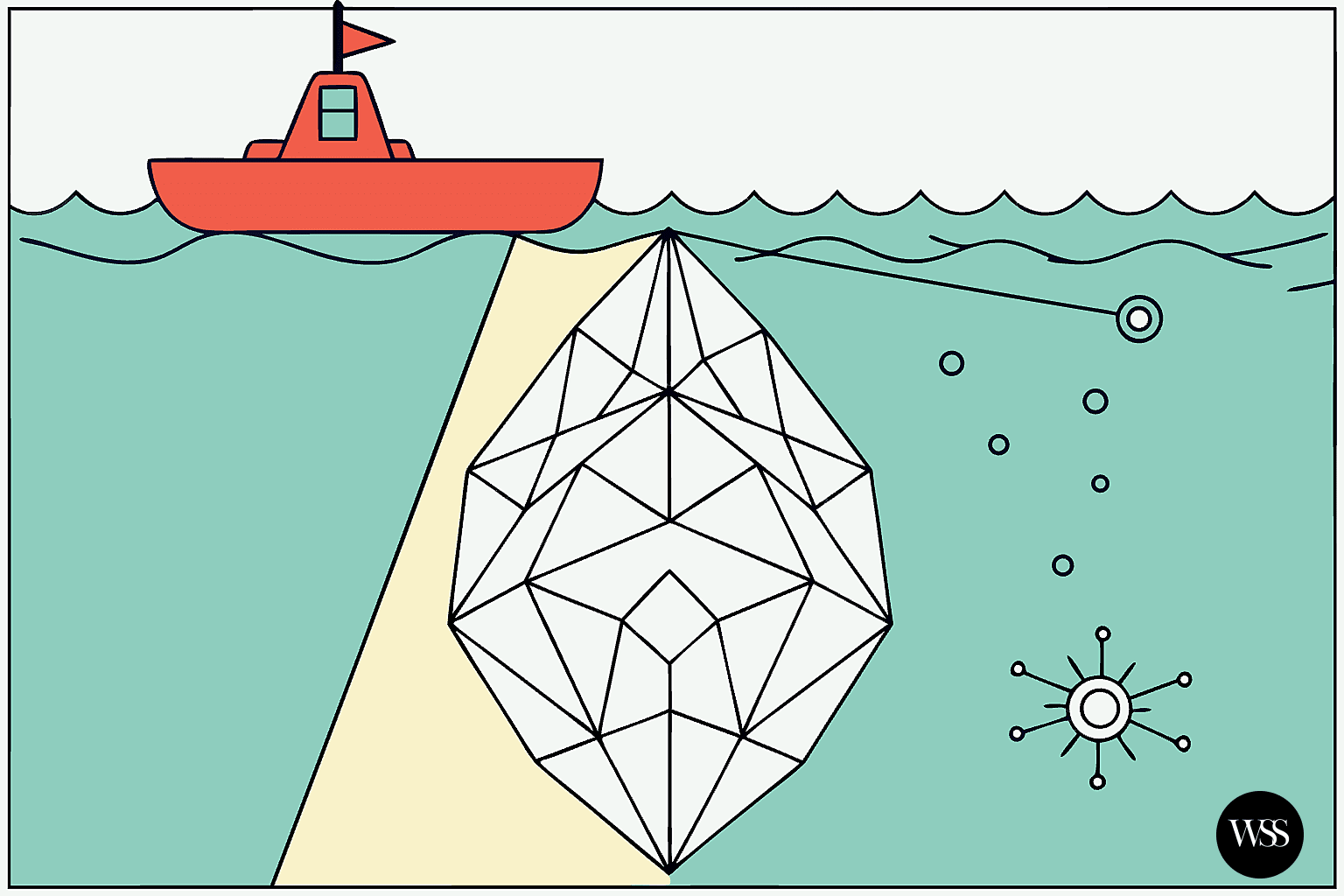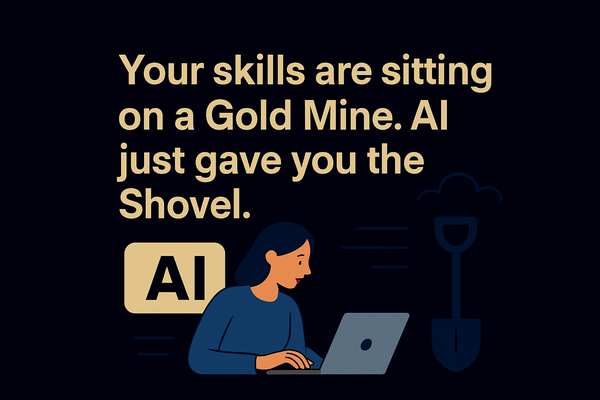AI Valuation Secrets Most Investors Don't Know
AI property valuation tools aren't magic. Most investors waste time chasing inaccurate data. Here's the truth about using AI like the pros to find real opportunities others miss.

The real estate game is being flooded with new digital tools, and at the top of that list are AI-powered property valuation platforms. These systems, known as Automated Valuation Models (AVMs), promise instant market values by crunching mountains of data. The latest versions even analyze listing photos and zoning documents.
They offer incredible speed for sifting through deals, but relying on them blindly is a fast track to a very expensive mistake. Knowing how to use them—and when to ignore them—is what separates the pros from the amateurs.
Insights
- AI valuation tools like Zillow’s Zestimate and Redfin Estimate now use neural networks to analyze listing photos and public records, offering a quick first look at a property's potential value.
- These algorithms are powerful for initial screening but are notoriously unreliable for unique homes, properties in diverse neighborhoods, or anything requiring a physical inspection to assess its true condition.
- The smart way to use AI valuations is to cross-reference multiple platforms, treat the number as a starting hypothesis, and always verify the data with your own due diligence.
- For flippers and wholesalers, these tools can provide a rough estimate of after-repair value (ARV), but this figure must be confirmed with a detailed analysis of local comparable sales.
- No lender will ever approve a mortgage based on an AI valuation; they are supplements to, not replacements for, professional appraisals and agent-prepared market analyses.
What Are AI Property Valuation Tools?
At their core, AI property valuation tools are sophisticated algorithms designed to predict a property's market value without a human ever setting foot on the premises. These AVMs process a firehose of information—public records, tax assessments, MLS listings, and local market trends—to generate an estimate in seconds.
The technology has moved beyond simple data points. Today’s leading AVMs process both structured data (like square footage) and unstructured data (like the text in listing descriptions and the quality of finishes in photos). They are built for speed and scale, allowing an investor to get a baseline reading on hundreds of properties in the time it used to take to analyze one.
"Automated Valuation Models leverage public records, MLS data, and neighborhood metrics to predict property values faster than traditional appraisals."
Spencer Rascoff Co-founder of Zillow
How Does the Machine Think?
Think of an AVM as a machine that has studied millions of home sales. It learns to identify patterns. For example, it might correlate a recently updated kitchen visible in photos with a 5% price premium in a specific zip code, or flag that corner lots in another area tend to sell for less.
The inputs are vast: deeds, lot sizes, school ratings, crime rates, and proximity to amenities are all thrown into the mix. By weighing these factors against historical sales data, the AI spits out a number. It all happens within seconds.
But this speed comes with a massive blind spot. The machine can’t see the water damage hidden behind a new coat of paint or hear the train that screeches by every hour. It’s a data-driven guess, not an informed opinion based on physical reality.
"While AVMs offer speed and scale, they cannot replace the nuanced insights of a licensed appraiser who physically inspects the property."
Jonathan Miller President of Miller Samuel Inc.
Popular AI Valuation Tools for Investors
The battlefield for AI valuation is crowded, but a few key players dominate the field. Knowing their strengths and weaknesses is part of the game.
Here are some of the platforms you'll encounter:
- Zillow Zestimate: The most recognized name in the space. It’s a good starting point for on-market properties, but its accuracy can vary wildly by location.
- Redfin Estimate: Often considered slightly more accurate than the Zestimate in major metro areas where Redfin has a strong brokerage presence.
- Realtor.com: Pulls data from multiple sources to provide its own automated valuation alongside property listings.
- PropStream: A favorite among wholesalers and flippers for its deep well of data on off-market properties and distressed assets.
- HouseCanary: A more enterprise-focused tool targeting serious investors. Its CanaryAI assistant and massive 136-million-property database offer deeper analytics, with plans starting around $19 per month.
- CoreLogic: A heavyweight in real estate data that provides AVMs used by many financial institutions behind the scenes.
- DealCheck: Built specifically for investors, this platform allows you to input renovation costs and other variables to project returns and estimate after-repair value.
"AI valuation tools provide accessibility and cost-effectiveness, enabling investors to evaluate hundreds of properties quickly and affordably."
Chad Nash Broker-Owner at Nash & Company Real Estate
The Critical Limitations and Obvious Risks
For all their benefits, these tools are riddled with limitations. Ignoring them is financial malpractice. The algorithm has no eyes, no ears, and no gut instinct.
Here’s where they consistently fail:
- No Physical Inspection: An AVM can't tell you if the foundation is cracked, the roof is about to fail, or if an unpermitted addition was built with shoddy workmanship.
- Bad Data In, Bad Data Out: The models rely on public records, which are often outdated or just plain wrong. An incorrect square footage or bedroom count can throw the entire valuation off.
- The "Unique Property" Problem: AVMs are terrible at valuing anything out of the ordinary. Custom homes, properties with unusual layouts, or houses in neighborhoods with few recent sales will confuse the algorithm.
- Market Blind Spots: The machine doesn't know about the new high-end grocery store planned for down the street, nor does it understand the subtle value difference between one side of a street and the other.
- Published Error Rates: The providers themselves tell you they aren't perfect. Zillow, for instance, reports a median error rate of around 2.0% for on-market homes, but that rate jumps significantly for off-market properties. An error of just a few percentage points can wipe out your entire profit margin.
"Relying solely on an AVM for offer pricing risks overpaying due to data inaccuracies or market nuances the model cannot detect."
Jonathan Miller President of Miller Samuel Inc.
Analysis
So what does this all mean for your strategy? In a high-interest-rate environment where every dollar of capital counts, efficiency is king. You can't afford to waste time and money chasing bad deals.
This is where AVMs find their true purpose: not as a valuation tool, but as a high-speed deal-filtering tool. The goal isn't to find the exact value of a property; it's to quickly eliminate the 90% of listings that are obviously overpriced or don't fit your criteria.
The rise of more advanced features, like HouseCanary's AI assistant or the ability to upload photos to get a better ARV estimate, shows where the industry is heading. The technology is getting smarter, but it will never replace on-the-ground intelligence.
The winning strategy is a hybrid one. Use the machine to scan the entire market for potential targets, then deploy your human expertise—your knowledge of the neighborhood, your contractor's estimate, your agent's insights—to validate the handful of opportunities that make it through the filter.
The smart investor treats the AI valuation as a hypothesis to be tested, not a fact to be trusted. It's the first question, not the final answer.
Final Thoughts
AI property valuation tools are a significant development in real estate investing. They give individual investors access to data and analytical power that was once reserved for large institutions. They allow you to scan the horizon for opportunities with incredible speed.
But they are just that—a tool. A powerful one, but a dumb one. They lack context, nuance, and the common sense that comes from walking a property and seeing the neighborhood with your own eyes. Your job as an investor is to harness the machine's processing power for initial screening and then apply your own judgment to make the final call.
The future isn't about choosing between technology and human expertise. It's about integrating them. The investors who win in the next decade will be the ones who master this combination, using AI to find the needle in the haystack and their own intelligence to confirm it’s actually gold.
"The future of real estate valuation lies in integrating AI insights with human expertise to maximize accuracy and investment success."
Spencer Rascoff Co-founder of Zillow
Did You Know?
The AI in real estate market is projected to reach $303.06 billion in 2025, growing at a compound annual growth rate of 36.1%. This rapid expansion highlights the increasing reliance on technology for everything from property search to valuation and management.




